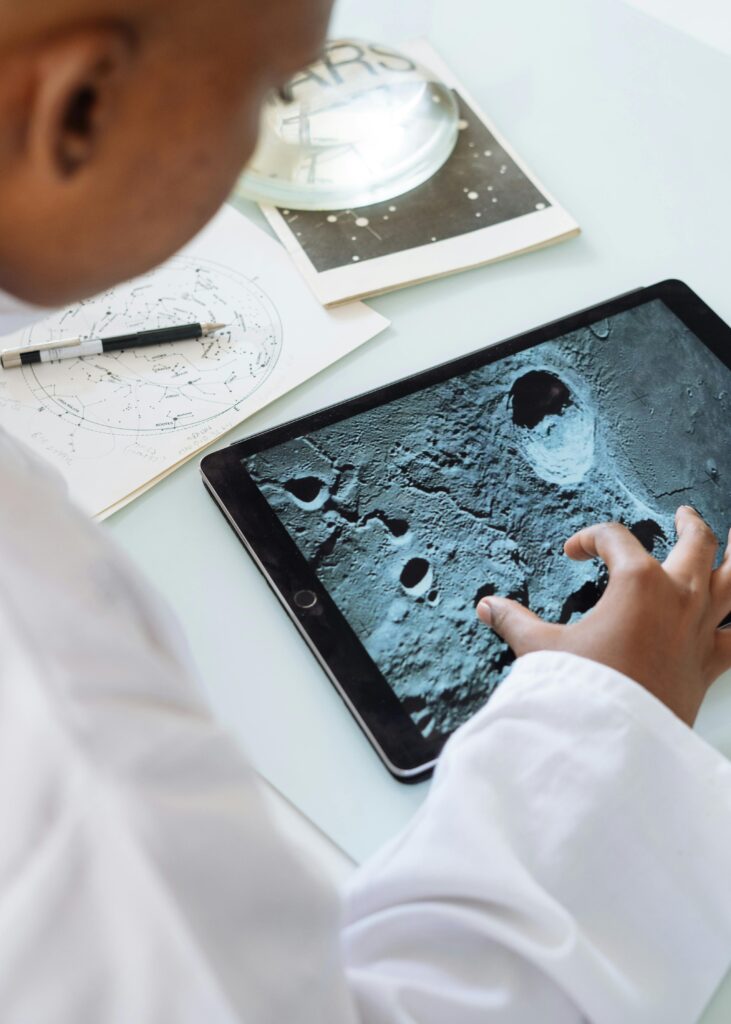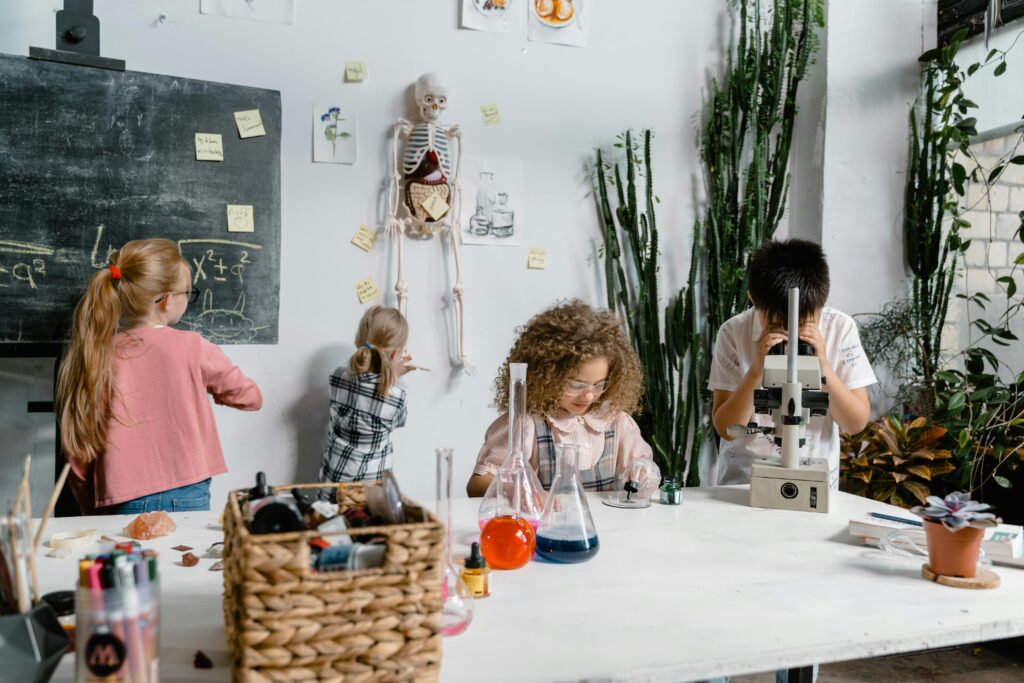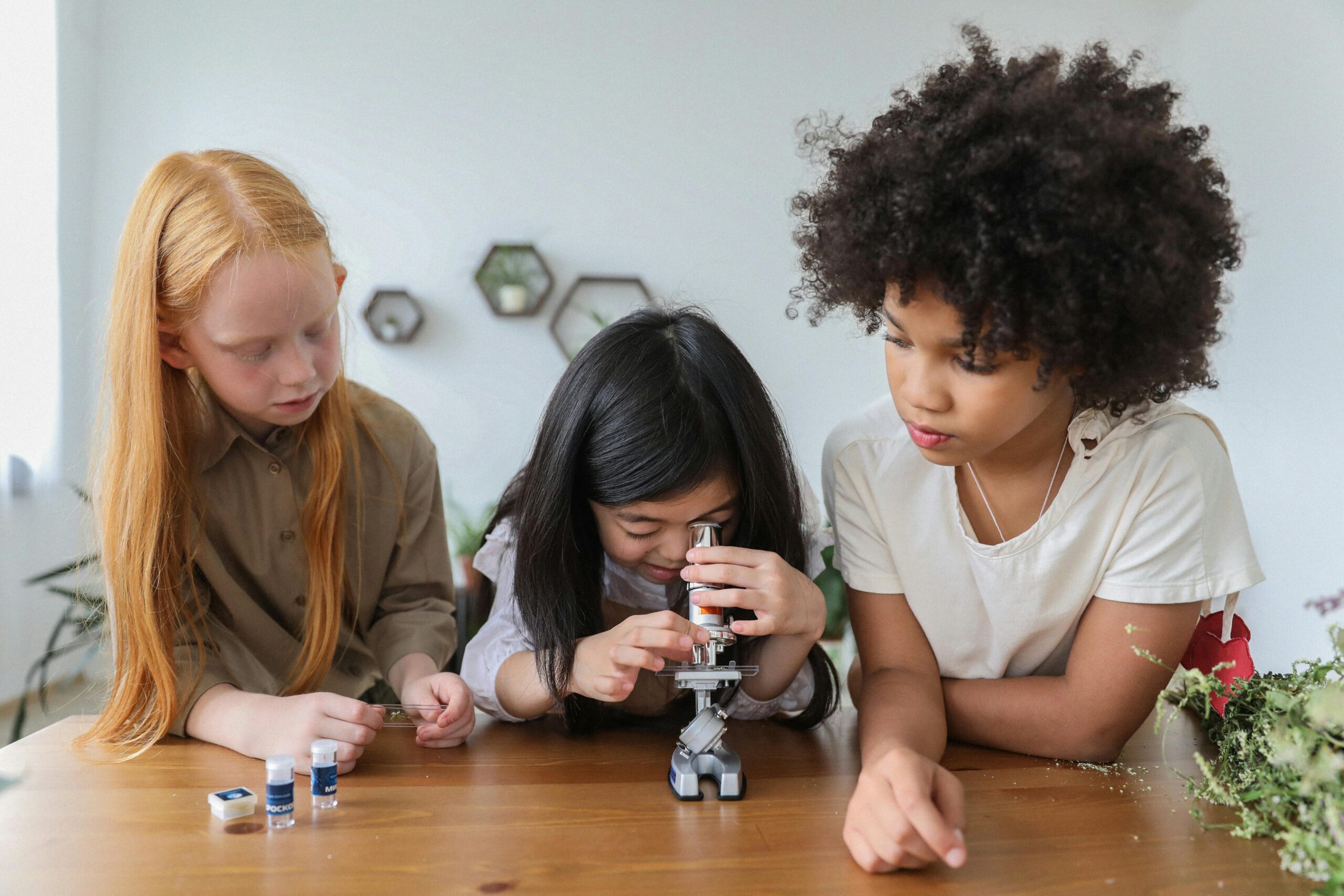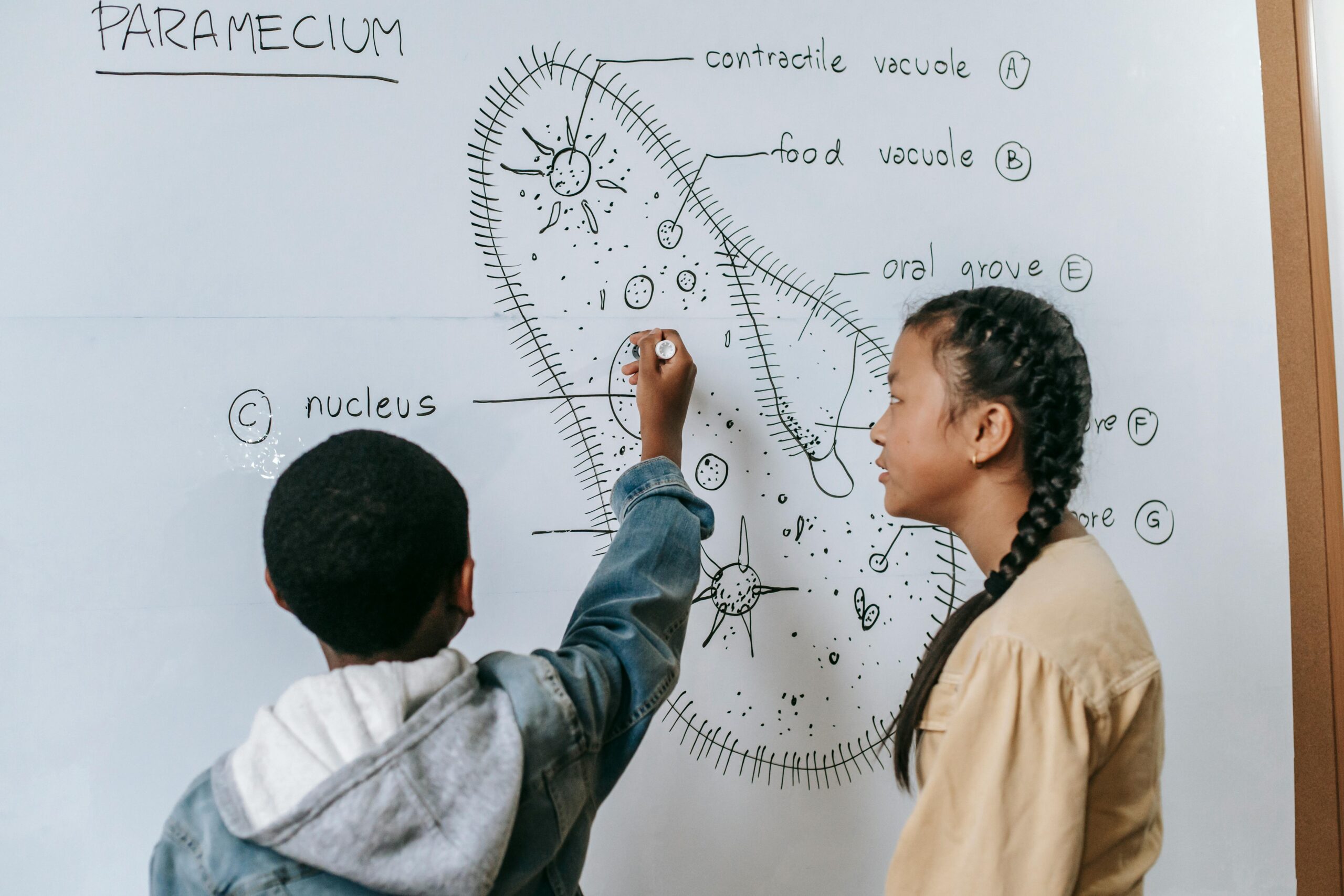Online Courses and Tutorials
Online courses and tutorials can be powerful tools for preparing your child for science competitions. These resources provide flexible, engaging, and effective ways to learn. As a parent in Ontario, you play a vital role in guiding your child through these educational opportunities. Let’s explore how you can make the most of online apps and websites to help your young scientist excel science competition!
Exploring Top Online Platforms
There are many online platforms offering high-quality science courses and tutorials. Khan Academy is a great starting point. It offers comprehensive lessons in various science subjects, from basic concepts to advanced topics. The interactive videos and practice exercises make learning fun and effective.
Coursera is another excellent platform. It partners with top universities to offer courses in physics, chemistry, biology, and more. These courses often include video lectures, quizzes, and peer-reviewed assignments. Your child can earn certificates upon completion, adding a sense of accomplishment.
Udemy provides a wide range of science courses created by industry experts. These courses are often affordable and cover niche topics, perfect for deep dives into specific areas. The video lectures and downloadable resources are great for independent learning.
The Benefits of Self-Paced Learning
One of the significant advantages of online courses is self-paced learning. Your child can learn at their own speed, revisiting challenging topics as needed. This flexibility allows them to balance schoolwork, hobbies, and relaxation. Encourage your child to set a study schedule that fits their routine, making learning consistent and manageable.
Making Learning Interactive and Fun
Interactive tutorials are a fantastic way to make science come alive. PhET Interactive Simulations, created by the University of Colorado Boulder, offers virtual labs and simulations. These tools allow your child to experiment with scientific concepts in a safe, controlled environment.
Utilizing Free Resources
High-quality education doesn’t always come with a hefty price tag. Many free resources are available online. Khan Academy, as mentioned earlier, is completely free. It covers a broad range of subjects and offers practice exercises to reinforce learning.
The National Geographic Kids website is another excellent free resource. It offers fun articles, videos, and games related to science and nature. These resources can spark curiosity and inspire your child to explore more.
Encouraging Consistent Practice
Consistent practice is key to mastering science concepts. Platforms like Brilliant offer daily problem-solving challenges in various science subjects. These challenges are designed to be engaging and thought-provoking, helping your child develop critical thinking skills.
Quizlet is another useful tool for practice. It allows users to create and share flashcards on different topics. Your child can use flashcards to review key terms and concepts, making study sessions more effective.
Balancing Online and Offline Learning
While online courses are valuable, balancing them with offline activities is essential. Encourage your child to conduct simple experiments at home. Websites like Science Buddies provide ideas for easy and safe science projects. These hands-on activities reinforce theoretical knowledge and make learning more enjoyable.
Staying Involved and Supportive
Your involvement and support are crucial for your child’s success. Take an active interest in their learning journey. Help them find relevant courses and resources, and encourage regular study habits. Celebrate their achievements, no matter how small, to keep them motivated.
Consider setting up a dedicated study space at home. A quiet, organized area can help your child focus better. Provide necessary supplies like notebooks, pens, and a reliable internet connection.
Connecting with Online Communities
Online communities can offer additional support and motivation. Websites like Reddit and Stack Exchange have active science communities where students can ask questions and share knowledge. Encourage your child to participate in these forums. Engaging with peers and experts online can provide different perspectives and deepen their understanding.
Embracing the Digital Age
In the digital age, online courses and tutorials offer endless possibilities for science education. By exploring these resources, setting up a structured learning schedule, and maintaining a supportive environment, you can help your child excel in science competitions. Embrace these tools, and watch your young scientist thrive!

Educational Apps and Software
In today’s digital world, educational apps and software offer powerful tools to help your child prepare for science competitions. As parents in Ontario, you have access to various resources that can enhance your child’s learning experience. Let’s dive into some of the best apps and software available, making science study engaging and effective!
Interactive Learning with Educational Apps
Educational apps can make learning science fun and interactive. One excellent app is Khan Academy Kids. It’s designed for younger students and covers a range of topics with engaging activities. Your child can explore science through interactive lessons, making complex concepts easier to understand.
Another fantastic app is Brainscape. It uses a flashcard system to help your child learn and retain information. Brainscape’s adaptive learning technology customizes the experience to focus on areas where your child needs more practice. This makes studying for science competitions more efficient and targeted.
ClassDojo is another app that fosters a positive learning environment. It helps teachers and parents communicate, track progress, and provide feedback. Your child can earn points for completing science-related tasks, which keeps them motivated and engaged.
Enhancing Understanding with Software Tools
Software tools can provide deeper insights into scientific concepts. Wolfram Alpha is a computational engine that answers science questions and solves problems. Your child can use it to understand complex equations or visualize scientific data. It’s like having a powerful scientific calculator on hand.
Scratch is a coding platform where kids can create their own interactive stories, games, and animations. It’s a great way for your child to learn about computer science and engineering while having fun. By creating projects, they can apply their knowledge in a practical and enjoyable way.
Engaging with Science through Gamified Learning
Gamified learning apps turn study time into playtime. Prodigy is a math game that covers science topics too. Your child embarks on adventures, solving math and science problems to progress. The game’s design keeps them engaged while reinforcing their knowledge.
Kahoot! is a game-based learning platform where you can create science quizzes. Your child can compete with friends or classmates in a fun, interactive way. Kahoot! quizzes are a great way to review concepts before a competition.
Another engaging app is Quizlet. It allows users to create and share flashcards on various topics. Your child can test their knowledge with fun, interactive quizzes. Quizlet’s gamified approach makes studying less daunting and more enjoyable.
Supplementing Learning with Real-Life Apps
Real-life apps can bring science concepts to life. Star Walk 2 is an astronomy app that lets your child explore the night sky. They can identify stars, planets, and constellations in real-time. This hands-on experience makes learning about space exciting and tangible.
iNaturalist is another excellent app. It encourages your child to explore nature and document their findings. They can identify plants and animals with the app’s community support. This real-world engagement deepens their understanding of biology and ecology.
Toca Lab offers a fun way to learn about chemistry. Your child can experiment with virtual lab equipment and discover new elements. The playful approach makes chemistry accessible and intriguing.
Keeping Track of Progress with Educational Software
Tracking progress is essential for effective learning. Edmodo is an educational platform that connects students, teachers, and parents. You can monitor your child’s assignments, grades, and feedback. This helps you stay involved in their learning journey.
Seesaw is another useful tool. It allows students to create digital portfolios of their work. You can see their projects and progress in real-time. Seesaw’s interactive platform encourages your child to take pride in their achievements.
Google Classroom is widely used in schools. It helps organize assignments, communicate with teachers, and access learning materials. By using Google Classroom, you can ensure your child stays on top of their studies and deadlines.
Encouraging Independent Learning
Educational apps and software empower your child to take control of their learning. Encourage them to explore different apps and find the ones that suit their style. Independent learning builds confidence and prepares them for science competitions.
Make sure to balance screen time with offline activities. Combining digital learning with hands-on experiments or nature exploration creates a well-rounded educational experience. Your support and involvement are key to their success.

Virtual Labs and Simulations
As science competitions become more challenging, students need effective ways to practice and understand complex concepts. Virtual labs and simulations offer a dynamic and engaging approach to learning. Here’s a guide for Ontario parents on how to utilize these tools to help your child excel.
Exploring Science with Virtual Labs
Virtual labs allow your child to perform experiments safely and conveniently. Labster is a fantastic platform offering hundreds of virtual labs in biology, chemistry, and physics. Your child can conduct experiments, analyze data, and understand scientific concepts in an immersive environment. This hands-on experience is invaluable for preparing for science competitions.
Another great resource is PhET Interactive Simulations. Developed by the University of Colorado Boulder, PhET offers simulations in various science subjects. Your child can manipulate variables and observe outcomes, making abstract concepts more tangible. It’s a fun way to explore and learn.
Gizmos by ExploreLearning provides a wide range of interactive simulations for grades 3-12. These simulations cover topics like energy, forces, and chemical reactions. Gizmos’ engaging activities make learning exciting and help reinforce key concepts.
Engaging with Real-Life Scenarios
Virtual labs allow students to engage with real-life scenarios. Virtual Biology Lab lets your child perform experiments like DNA extraction and cell division. These activities provide a deeper understanding of biological processes. It’s like having a fully equipped lab at home!
For chemistry enthusiasts, ChemCollective Virtual Labs offer simulations where your child can mix chemicals and observe reactions. This interactive platform helps them grasp complex chemical principles. They can practice safely without any risk of accidents.
PraxiLabs is another excellent tool. It offers virtual labs in physics, chemistry, and biology. Your child can experiment with different scenarios, test hypotheses, and develop critical thinking skills. PraxiLabs’ realistic simulations provide an immersive learning experience.
Supplementing Classroom Learning
Virtual labs and simulations supplement classroom learning by providing additional practice. Science in Motion offers free simulations for various science topics. Your child can explore concepts like momentum and genetics at their own pace. This reinforces what they learn in school.
BioDigital Human is a digital anatomy platform. Your child can explore the human body in 3D, learning about different systems and functions. It’s a fantastic tool for understanding biology in a detailed and interactive way.
STEMscopes provides digital resources for K-12 students. It includes interactive simulations and virtual labs that align with curriculum standards. Your child can deepen their understanding of science topics covered in class.
Making Learning Fun and Interactive
Virtual labs and simulations make learning fun and interactive. Tynker offers coding and STEM activities for kids. Your child can create their own simulations and games, applying science concepts in a creative way. This encourages them to think critically and problem-solve.
Scratch is another platform where kids can create animations and interactive stories. They can apply physics principles to make objects move realistically. This hands-on approach makes learning science enjoyable and engaging.
Minecraft Education Edition offers a unique way to learn science. Your child can explore scientific concepts in a virtual world, conducting experiments and solving problems. This gamified approach makes science education captivating.
Encouraging Independent Learning
Virtual labs and simulations encourage independent learning. Beyond Labz offers virtual labs in chemistry, biology, and physics. Your child can explore different experiments and learn at their own pace. This fosters a sense of autonomy and confidence in their abilities.
SimPop provides interactive simulations for environmental science. Your child can experiment with ecosystems and understand the impact of different variables. This independent exploration enhances their problem-solving skills.
LabXchange by Harvard University offers free virtual labs and simulations. Your child can access high-quality resources to prepare for science competitions. This platform promotes self-directed learning and helps them stay ahead.
Preparing for Science Competitions
Using virtual labs and simulations can significantly boost your child’s preparation for science competitions. Physics Classroom offers interactive tutorials and simulations. Your child can practice physics problems and gain a better understanding of the subject.
Virtual Physics Labs provide simulations where students can experiment with different physics concepts. This hands-on practice helps them prepare for competitions and tests.
Interactive Science Simulations by Concord Consortium offers a variety of simulations for physics, chemistry, and biology. Your child can explore concepts like energy transfer and chemical reactions. This comprehensive practice ensures they are well-prepared.

Connecting with Online Science Communities
In today’s digital age, online science communities are invaluable resources. They offer support, knowledge, and a sense of belonging. For parents in Ontario, these communities can be game-changers in helping your child prepare for science competitions. Let’s dive into how you can connect with these communities and the benefits they offer.
Finding the Right Communities
Finding the right online science communities is crucial. Reddit has several science-focused subreddits like r/Science and r/AskScience. These forums provide a wealth of information and a place to ask questions. Your child can learn from experts and enthusiasts alike.
Quora is another excellent platform where people share their knowledge on various science topics. Your child can follow specific topics and engage with answers from scientists and educators. It’s a great way to gain insights and different perspectives.
For a more structured learning experience, Khan Academy’s discussion forums are fantastic. Students can ask questions about specific lessons and get answers from the community. This interactive approach helps clarify doubts and reinforces learning.
Engaging with Peers and Mentors
Engaging with peers and mentors in online science communities can boost your child’s confidence. Discord has numerous science servers where students can chat in real-time. They can join study groups, participate in discussions, and even get help with their homework.
LinkedIn offers groups dedicated to young scientists and STEM enthusiasts. Your child can connect with mentors, join discussions, and stay updated on the latest science trends. It’s also a great platform for networking and finding opportunities.
Facebook Groups like “Science Olympiad Alumni” or “Science Fair Projects” are excellent for connecting with like-minded individuals. These groups often share tips, resources, and experiences that can be invaluable for competition preparation.
Accessing Expert Advice
Online science communities are a treasure trove of expert advice. Coursera Community allows students to interact with course instructors and peers. If your child is taking a science course, they can ask questions and get expert guidance.
EdX Discussion Forums are another great place to get advice. Students can discuss course materials, share ideas, and get feedback from instructors and peers. This collaborative learning environment is perfect for deepening understanding.
ResearchGate is a platform where scientists share their research and collaborate. Older students can join to access research papers and ask questions. It’s a fantastic way to learn from real-world scientists and stay updated on current research.
Participating in Competitions and Challenges
Many online science communities host their own competitions and challenges. Instructables hosts contests where students can submit their science projects. These challenges encourage creativity and practical application of scientific knowledge.
Scratch is a community where kids can create and share their coding projects. They often host competitions that combine science and technology. It’s a fun way to apply coding skills and learn new concepts.
Kaggle offers data science competitions that are great for older students. They can participate in real-world data challenges and learn from the community. This practical experience is invaluable for those interested in data science and analytics.
Staying Updated with Science News
Staying updated with the latest science news is important for competition preparation. ScienceDaily offers news on the latest scientific discoveries and advancements. Your child can read articles and stay informed about current trends.
Nature News provides updates on groundbreaking research across various fields. It’s a great way for your child to stay connected with the scientific community and learn about new developments.
Live Science offers science news and interesting articles. Your child can explore different topics and gain a broader understanding of science. It’s a fun and engaging way to stay updated.
Leveraging Social Media
Social media platforms can also be powerful tools for connecting with science communities. Twitter has a vibrant science community where scientists, educators, and enthusiasts share their knowledge. Your child can follow hashtags like #ScienceTwitter to discover interesting content.
Instagram is another platform where many scientists and science communicators share their work. Accounts like @nasa and @sciencechannel offer fascinating insights and updates. It’s a visual and engaging way to learn about science.
YouTube offers countless educational channels like “SciShow”. These channels provide entertaining and informative videos on various science topics. Your child can learn at their own pace and explore different areas of interest.
Connecting with online science communities can greatly enhance your child’s preparation for science competitions. These communities offer a wealth of knowledge, support, and resources. By finding the right communities, engaging with peers and mentors, accessing expert advice, participating in challenges, staying updated with science news, and leveraging social media, your child can gain a competitive edge. Encourage your child to explore these platforms and make the most of the opportunities they offer. Happy learning and good luck with the competitions!
Want to know about Top Ontario Schools Excelling in Science Competitions?
Also interested in learning about Math Olympiads? check out Math Olympiad page for more information!




This article is a fantastic resource. Your detailed explanations and practical advice are greatly appreciated.
I found this post incredibly useful. The tips and insights you’ve shared are going to be very helpful for my work.